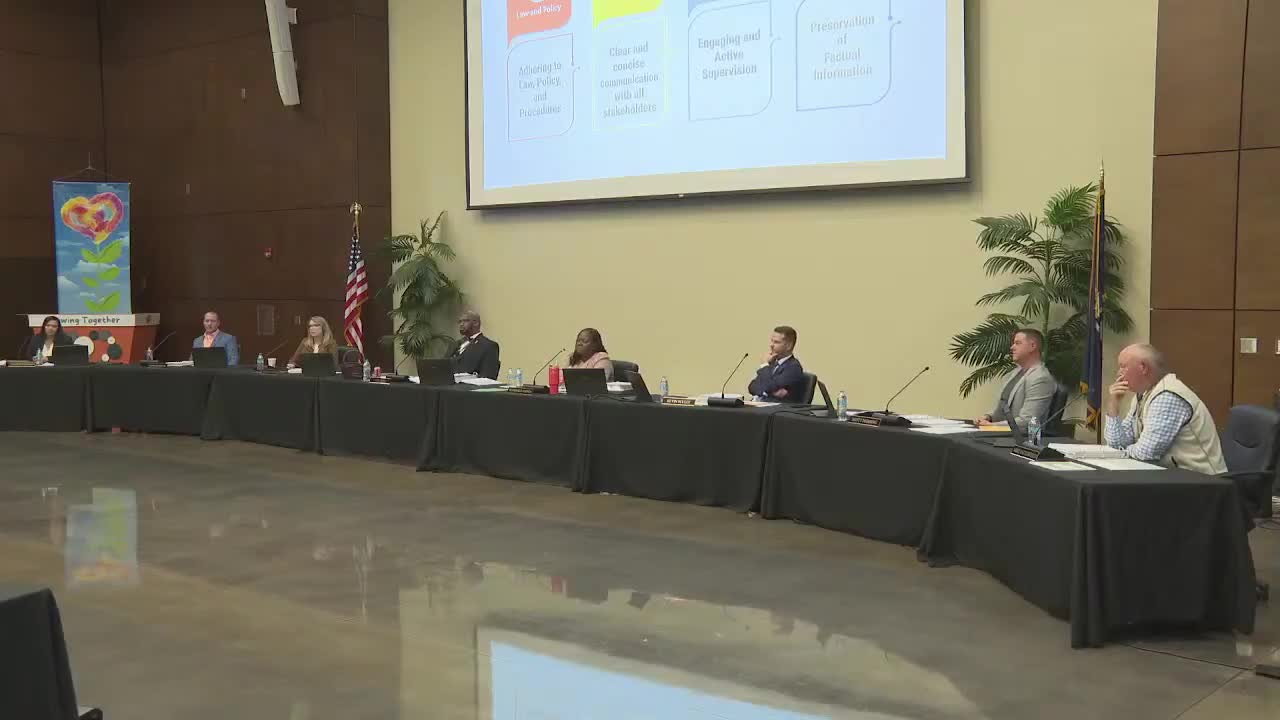Board denies parent complaint about Chromebook web search results; superintendent limits AI and affirms opt‑out
Get AI-powered insights, summaries, and transcripts
Subscribe
Summary
After public comment and discussion, the Lexington County School District Five board voted 4–3 on Oct. 27 to deny a parent complaint seeking removal of web search results from district‑managed Chromebooks.
After extensive public comment by teachers, instructional coaches and parents on Oct. 27, the Lexington County School District Five board voted to deny a parent’s request under district policy KEC to remove contested web search results accessed via district‑managed Chromebooks. The board’s vote to deny that complaint was 4–3.
Public speakers fell into two broad groups: classroom teachers, instructional coaches and district technology staff who argued continued Chromebook access is an essential instructional tool for differentiation, accommodations, language translation and alignment to state ELA and technology standards; and parents who asked the district to limit web search exposure for elementary students or keep k–5 devices at school to avoid preview thumbnails and headline text appearing in Google search results.
The superintendent described three immediate administrative actions already taken: limiting district‑authorized AI access to a single vendor (Magic School AI), making sure the opt‑out process is available to parents, and directing district staff to prepare to house k–5 devices at schools where teachers choose not to send devices home. He said any permanent policy changes would be decided later and noted the district must follow the state‑required KEC complaint process and issue written findings within 15 days.
The parent complaint, filed under the district’s instructional materials reconsideration process, specifically sought removal of contested web search results displayed on school‑issued Chromebooks, accessed with district Google accounts. District counsel explained the KEC process requires a public meeting and a board decision to grant, grant in part, deny in part or deny in full; the board’s vote to deny the request closes the district‑level step but allows the complainant to appeal to the State Board of Education.
Teachers and instructional specialists in public comment said Chromebooks enable adaptive learning platforms, read‑aloud accommodations, multilingual translation tools, and digital formative assessments that teachers use constantly to identify small groups and tailor instruction. Parents who supported restrictions said thumbnails and partial search results sometimes display inappropriate or mature images even when a site is blocked, and they asked for stronger filtering or to keep devices on campus.
District technology staff said some Google search preview features recently changed and that, while the district can block many sites and can disable browser features in some configurations, preview thumbnails and headline snippets are a Google product that cannot be fully suppressed in every circumstance; the district indicated ongoing work with vendors to adjust settings where possible.
Following the vote, the superintendent said teachers and principals would get clear guidance about current administrative measures and that the district will prepare required written findings and continue work on a comprehensive review of device and digital‑citizenship policy.
